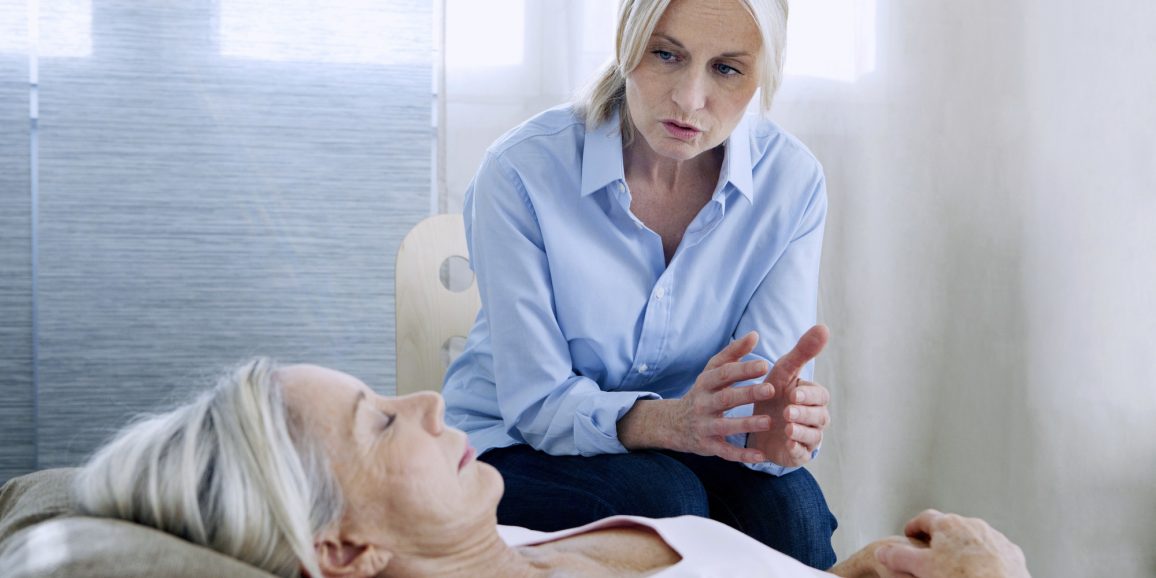Hypnotherapy is scientifically proven to alleviate symptoms and to empower clients to control symptoms of the menopause.
• Hot flashes
• Disturbed sleep patterns
• Anxiety and Depression
• Mood swings
• Night sweats
• Lowered libido
Recent studies have shown that Hypnotherapy helps perimenopausal and menopausal women to alleviate symptoms and to acquire some control over them.
This particular study looked into the benefits of hypnotherapy as opposed to hormone treatment in the case of hot flashes and the central findings are presented below verbatim, with a link to the full article.
Objective
The use of estrogen and progesterone to manage vasomotor symptoms (i.e., hot flashes, night sweats) has declined due to concerns over their risks and there is an increased interest in alternate, effective, and low-risk treatments. This study reports the results of a randomized, controlled trial of clinical hypnosis in treating vasomotor symptoms among post-menopausal women.
Methods
Randomized, single-blind, controlled, clinical trial involving 187 post-menopausal women reporting a minimum of seven hot flashes per day, or at least 50 hot flashes a week at baseline between December 2008 and April 2012. Eligible participants received five weekly sessions of either clinical hypnosis or structured-attention control. Primary outcomes were hot flash frequency (subjectively and physiologically recorded) and hot flash score assessed by daily diaries at weeks 2–6, and 12. Secondary outcomes included measures of hot flash related daily interference, sleep quality and treatment satisfaction.
Results
In a modified intent-to-treat analysis that included all randomized participants that provided data, reported subjective hot flash frequency from baseline to week 12 showed a mean reduction of 55.82 hot flashes for the clinical hypnosis intervention (74.16%), versus a 12.89 hot flash reduction (17.13%) for the control (p<.001, 95% CI, 36.15–49.67). Mean reduction in hot flash score was 18.83 (80.32%) for the clinical hypnosis intervention as compared to 3.53 (15.38%) for the control (p<.001, 95% CI, 12.60–17.54). At 12 week follow-up, the mean reduction in physiologically monitored hot flashes was 5.92 (56.86%) for clinical hypnosis and .88 (9.94%) for the control (p<.001, 95% CI, 2.00–5.46). Secondary outcomes were significantly improved compared to control at 12 week follow-up in hot flash related interference (p<.001, 95% CI, 2.74–4.02), sleep quality (p<.001, 95% CI, 3.65–5.84), and treatment satisfaction (p<.001, 95% CI, 7.79–8.59).
Conclusion
Compared to a structured attention control, clinical hypnosis resulted in significant reductions in self-reported and physiologically measured hot flashes as well as hot flash scores in post-menopausal women.
Hypnotherapy is fundamentally all about change, specifically about changing a client’s inner narrative. As long as the client sincerely wants to change, debilitating and limiting behaviours and belief systems can be modified permanently using hypnosis.
So how can this apply to menopause symptoms?
A course of hypnotherapy will empower the client to recognise early signs and symptoms and will provide simple straightforward methods to manage anxiety and stress and to regulate extremes in mood. The application of these techniques will also help improve sleep patterns and address issues of low mood and self-esteem.
As a practicing hypnotherapist I also teach my clients a very simple technique to perform self-hypnosis in order to reinforce therapist led sessions. This is complemented by simple mind-calming meditation exercises.
Another extract below from an extensive study again provides evidence-based proof that hypnotherapy is a successful way to alleviate menopausal symptoms. This study was produced by the North American Menopause Society (NAMS)
Full article is here:
US surveys show just how uncertain women are about these therapies, with one survey demonstrating that nearly half feel confused about their options for managing menopause symptoms and another showing that 75% don’t feel fully informed about herbal products. But with this careful, critical look at all the available studies, healthcare providers can confidently advise women on how to handle hot flashes without hormones.
The NAMS panel found solid evidence that a few therapies do work, including two behavioural approaches and certain nonhormonal prescription medications. Other lifestyle and behavioural approaches, treatments, and a supplement under study look beneficial, but the evidence is not as strong. And the evidence for other lifestyle approaches, herbs, and supplements is insufficient, inconclusive, or just plain negative.
Randomized, double-blind, controlled trials–the gold standard for determining therapies’ effectiveness–showed that a cognitive-behavioural therapy approach that combined relaxation techniques, sleep hygiene, and learning to take positive, healthy approaches to menopause challenges was significantly effective in reducing women’s ratings of hot flash problems (although not their number). And randomized, controlled trials of clinical hypnosis demonstrated the approach was significantly better than a “structured attention” therapy approach in postmenopausal women with frequent hot flashes and significantly better than no treatment in breast cancer survivors. The panel recommends these two mind-body approaches.
A typical course in hypnotherapy consists of an initial consultation followed by a series of sessions during which immediate symptoms and underlying causes can be identified and addressed at a pace that works completely in the interests of the client. For more short informative articles and client testimonials please follow this link.

